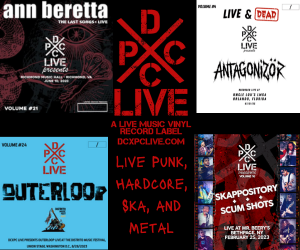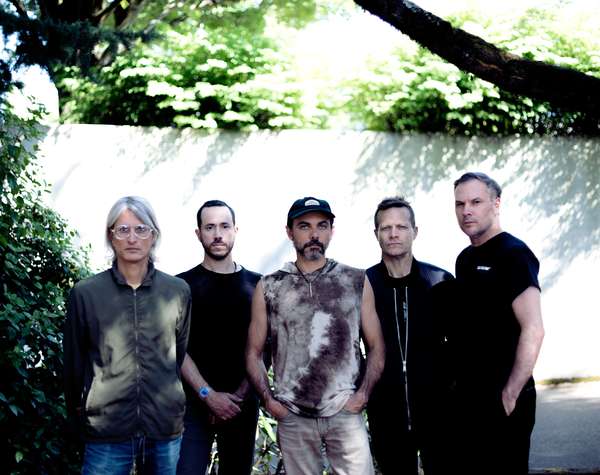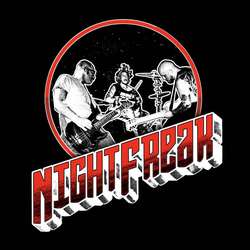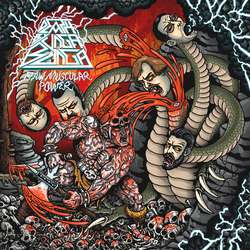Shake off the trenchant hold Depeche Mode has on dark sounding synth pop and Miracle opens up like a blooming flower. Sure David Gahan delivers more punch in his voice, and sure there’s a lack of Martin Gore's vibrato chilled melodies— aside from genre conventions monolithically constructed by Depeche Mode, Miracle is a more serious, mystical and cinematic variation of their more obvious influences.
On The Strife of Love in a Dream Miracle attempts to reach beyond esoteric mysticism uncovering new kinds of mystery. It aligns in artistic unity through the image of a moth to light, butterfly to flower, human to nature not in search of truth, but compulsion of artistic expression. The ultimate mysteries told by the Sybil in the cave are a redressing of reality influenced by the very illusions the prophet wishes to surpass. The truth is far weirder, more authoritarian, and demanding than previously believed.
Quite miraculously, before the first song ends, I’m compelled to skim Wagner, brush up on all my modern astrophysics, and delve into basic chemistry—remnants from the more curious times of my life. I’m not even mentioning the esoteric works of Ouspensky that flower up as a result of Miracles' themes. By the end of the album I had shrunk at the terrifying beauty of reality, reassured I could be master of myself, but ultimately I lay at the boot of realty as a whole.
The albums weakest song, "The Parsifal Gate" sets a very rigid, stop and go feel to begin such a fluid sound. The unexpected abrupt beginning threw me off, made me focus on sounds and techniques I hadn’t heard before put in this combination. Lyrically the first song is necessary for the rest of the album, but I wish it sounded like the rest.
In contradistinction, the albums strongest song, "Sulfur", cryptically throws the albums essence out in so few words. It has the most mesmerizing chorus, the most thought provoking lyrics, and most layered dynamics amongst an already pleasant sounding album. It is the dark star everything revolves around.
If love is the most human of desires, and if the dream and human mind are the intersection of experience, then according to Miracle the ultimate nature of reality is in conflict or at best, out of congruence with human experience. The very result of this ‘strife’ yielded the album—if not, any piece of art worth talking about. It may be the primary purpose of art and creativity to make piecemeal reform to reality using ‘unreality’. Such a powerful capability locked away within our mind is unlockable within that very mind.
If creativity made the key to understanding reality, then it doesn’t fit the door, our door. Instead it fits the wardrobe closet, enabling the creator to dress up dream reality how he wishes, provided he respects verisimilitude somewhat. According to Miracle the dream is more real than reality. It ‘harbors the life within,’ it is the point where all lines intersect, where we digest the day ‘attached to nothing but itself.’
Of course similar new age thought has its pitfalls. This kind of backslapping human potential borders on, what Vladimir Nabokov calls, ‘elephantine platitudes’. It’s partly why word choice and imagery is so difficult when wielding such heavy themes. The wrong elaboration often distorts rather than clarifies. Poets in all ages struggled and continue to struggle with languages imprecision, as do Miracle. To establish something concrete enough other than intertexuality and a few esoteric images in so few words takes so much mastery of language and music, that Miracles slight inadequacy alienates their listeners, if only by being too broad.
Although such weighty themes make Miracle a cryptic listen, The Strife of Love in a Dream is a cloudless sulfur feeding from a morning glory. Just as the prophet in the cave feeds from the earth’s gasses that grant supreme illusive visions, within this albums walls ‘a hundred doors, a hundred entries grace…the sound of Sibil’s words as many times rebound.’
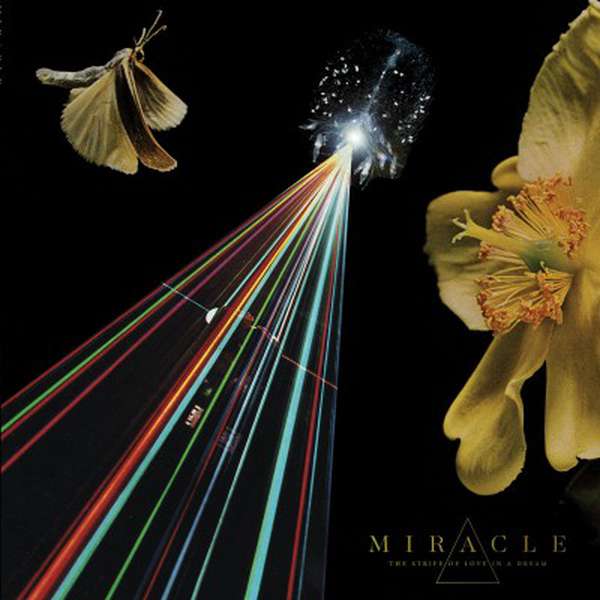

Related news
Miracle Music from Grails
Posted in Records on March 11, 2025
Draw some Miracle Blood
Posted in Records on September 27, 2024
Miracle Condition Song For Download
Posted in MP3s on September 22, 2009
Advertisement
